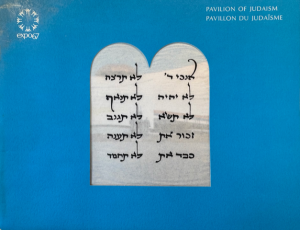Fiddler on the Roof opened on Broadway on Sept. 22, 1964. The musical, based on a story by Sholem Aleichem, is about the life of Tevye the milkman, and his three daughters in the town of Anatevka. Although Anatevka was a fictional place, it’s now the name of a village for refugees outside Kyiv and has Jewish schools, a synagogue, mikveh and kosher hotel.
Sholem Aleichem (1859-1916) was born in what is now Ukraine as Solomon Naimovich Rabinovich. He was a Yiddish author and playwright who moved to New York in 1906 after witnessing the pogroms in the Russian empire. He returned to Europe after a few years, and then travelled back to New York in 1914 where he died two years later.
Fiddler on the Roof (music by Jerry Bock, lyrics by Sheldon Harnick and book by Joseph Stein) was the first musical in history to surpass 3,000 performances on Broadway, ran for 10 years and won nine Tony Awards. The name of the show was inspired by Marc Chagall paintings, presumably because the producers thought the original name of the story, Tevye the Dairyman, was not a grabber.
The original Tevye was Zero Mostel. This Playbill from 1967 depicts Herschel Bernardi in the lead role. In addition to being an actor and singer, Bernardi was the original voice of the Jolly Green Giant (the mascot for a line of frozen and canned vegetables).
Fiddler on the Roof is the most successful musical in Japan where it is known as Yane No Ue No Baiorin-hiki. The show’s themes of love, family and the struggle to preserve traditions in a changing world resonate with Japanese audiences.
Author Joseph Stein travelled to Japan for the first production in that country and wrote: “I got there just during the rehearsal period and the Japanese producer asked me, ‘Do they understand this show in America?’ And I said, ‘Yes, of course, we wrote it for America. Why do you ask?’ And he said, ‘Because it’s so Japanese.’”
Tevye and Lazar Wolfe sing in “To Life- L’Chaim”: “And if our good fortune never comes, here’s to whatever comes”. These are words to live by in any language. Here they are in Japanese.







